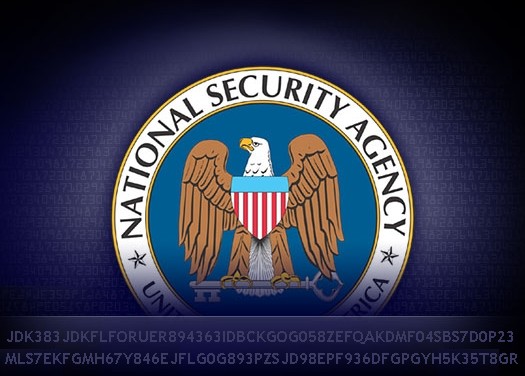

Hmm, no, I don't think so.
The scary part? Hurricane season officially begins June 1st.
Update: The Washiington Post has an article here about the earmarking of Katrina recovery funds.


1.b.(b.) The COMINT mission of the National Security Agency (NSA) shall be to provide an effective, unified organization and control of the communications intelligence activities of the United States conducted against foreign governments, to provide for integrated operational policies and procedures pertaining thereto. As used in this directive, the terms "communications intelligence" or "COMINT" shall be construed to mean all procedures and methods used in the interception of comunications other than foreign press and propaganda broadcasts and the obtaining of information from such communications by other than intended recipients, but shall exclude censorship and the production and dissemination of finished intelligence.


Capitol Hill politicians reacted angrily this week to a new report about how the National Security agency is involved in not merely surveillance of phone calls, but also an extensive data mining program.
"We need to know what our government is doing in its activities that spy upon Americans," said Sen. Patrick Leahy, a Vermont Democrat. Republican Sen. Arlen Specter of Pennsylvania vowed to hold hearings to get to the bottom of how the NSA's data mining works and whether Americans' privacy rights were affected.To answer some questions about the program and how it likely works, CNET News.com has created the following list of answers to frequently asked questions. Keep reading.
Q: What new information came out this week?
USA Today published an article on Thursday that said AT&T, Verizon and BellSouth turned over records of millions of phone calls to the National Security Agency. These are not international calls--they're apparently records of all calls that those companies' customers made.Two things are worth noting. First, based on the newspaper's description, contents of phone calls were not divulged. Second, customers' names, street addresses and other personal information were not handed over.
Q: When you say records of phone calls were turned over, what does that mean?
That's a reference to "call detail records," or CDRs, which are database entries that record the parties to the conversation, the duration of the call and so on. This appears to include local phone calls and not just long-distance calls.
CDRs are stored in massive telephone company databases. Cisco Systems' Unified CallManager lets customers use SQL queries to dig up information about each call. Those internal databases have either been opened up to outside queries from the NSA or (more likely) duplicated and handed over to the NSA on a regular basis.
Q: If the NSA has my phone number, can it get my name and address?
Yes. The NSA can cross-check other databases to obtain that information. Many commercial data vendors, such as Yahoo People Search and LexisNexis' People Locator, do just that--and count many federal agencies among their customers.
Q: How about cell phones? It would be a bit more difficult.
There's no central directory for cell phones, for instance. And there's not much information that can be gleaned about owners of disposable cell phones who happened to buy them with cash.
Q: How is this different from what we knew before?
A series of disclosures, starting with The New York Times' report in December, outlined how the NSA conducted surreptitious electronic surveillance of phone calls and e-mail traffic when one party was outside the United States. The president and other members of his administration have stuck to that claim--saying that domestic phone calls were not part of the dragnet. In January, for instance, Bush assured Americans that "one end of the communication must be outside the United States."
The latest revelation is different. It says the scope of the NSA's efforts is far broader than listening in on a few hundred conversations. Instead, the vast majority of Americans have probably had information on their phone calls turned over. (Another difference is that the contents of the conversations was not divulged, at least as far as we know.)
Q: When Attorney General Alberto Gonzales was testifying a few months ago, he seemed careful to specify that he was talking only about the "Terrorist Surveillance Program." Does that mean he knew about the phone data mining effort and refused to reveal it earlier? It seems likely, but we don't know.
During his appearance before the Senate Judiciary Committee and in a subsequent letter to senators, Gonzales' careful wording seemed to imply that there may be additional domestic surveillance programs beyond the one revealed by The New York Times.
(Testifying before senators, Gonzales referred to that program as "the program that the president has confirmed.") But Gonzales later reassured concerned politicians that the administration is not currently conducting any additional domestic surveillance programs, Rep. Jane Harman, the senior Democrat on the House Intelligence Committee, told The Washington Post in a March interview. Of course, Gonzales could have been parsing his words carefully--and might eventually claim that data mining is not surveillance.
Q: Now that the NSA has this mountain of data, what is the agency doing with it?
The two-word summary: data mining. That's a loose term that generally means directing a computer program to sift through large amounts of data in hopes of extracting previously unknown information.
In theory, useful patterns can emerge and future terrorist plots could be thwarted. In practice, though, The New York Times has reported that FBI sources say many of the tips provided by the NSA led to dead ends.
Q: What other data mining efforts has the NSA been involved with?
Details are classified, of course. But a few hints have become public, and we know that the NSA has funded or been otherwise involved in dozens of programs in the past.